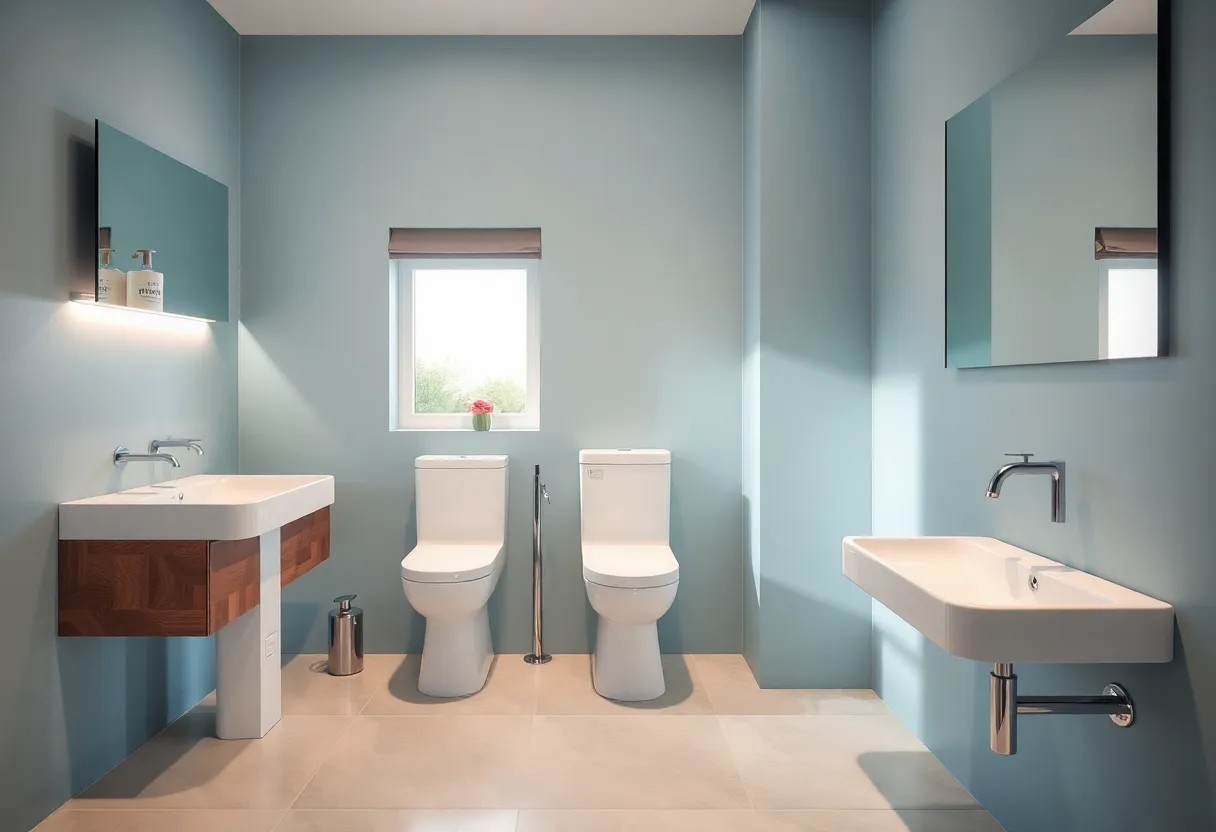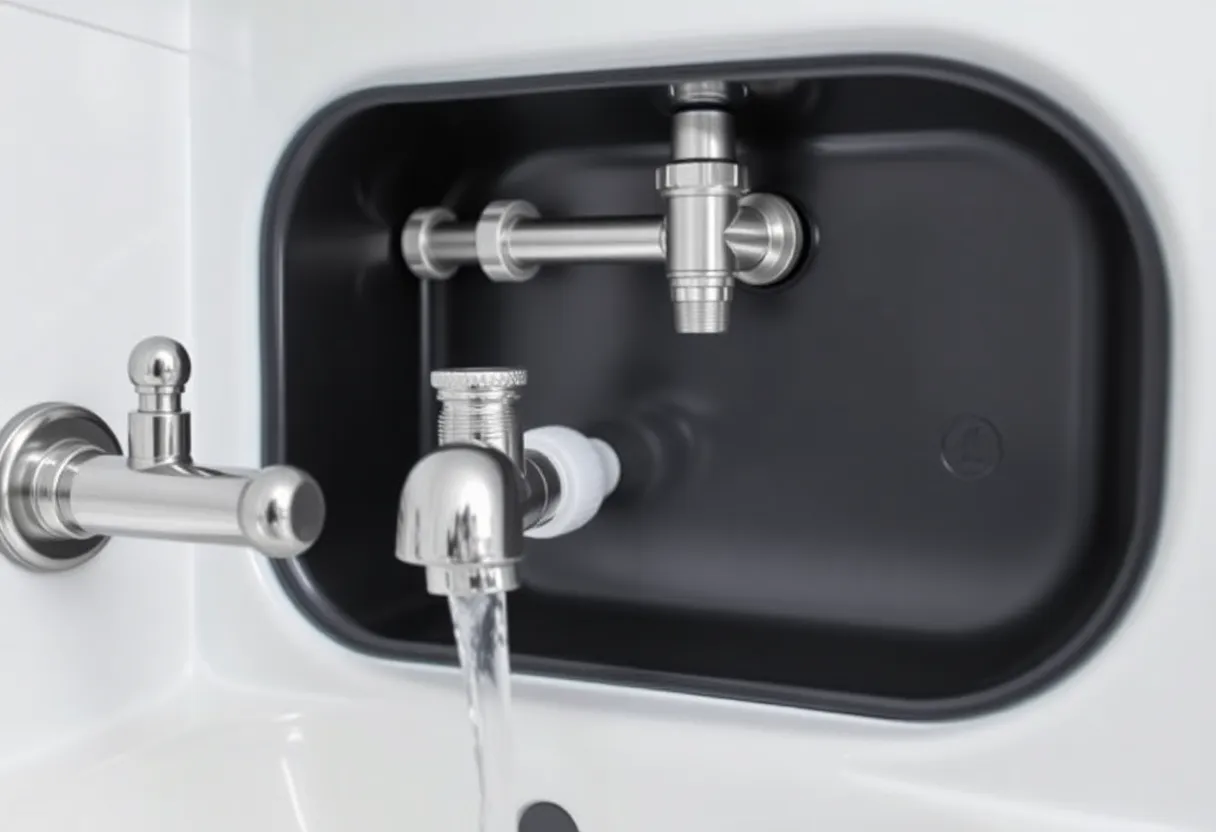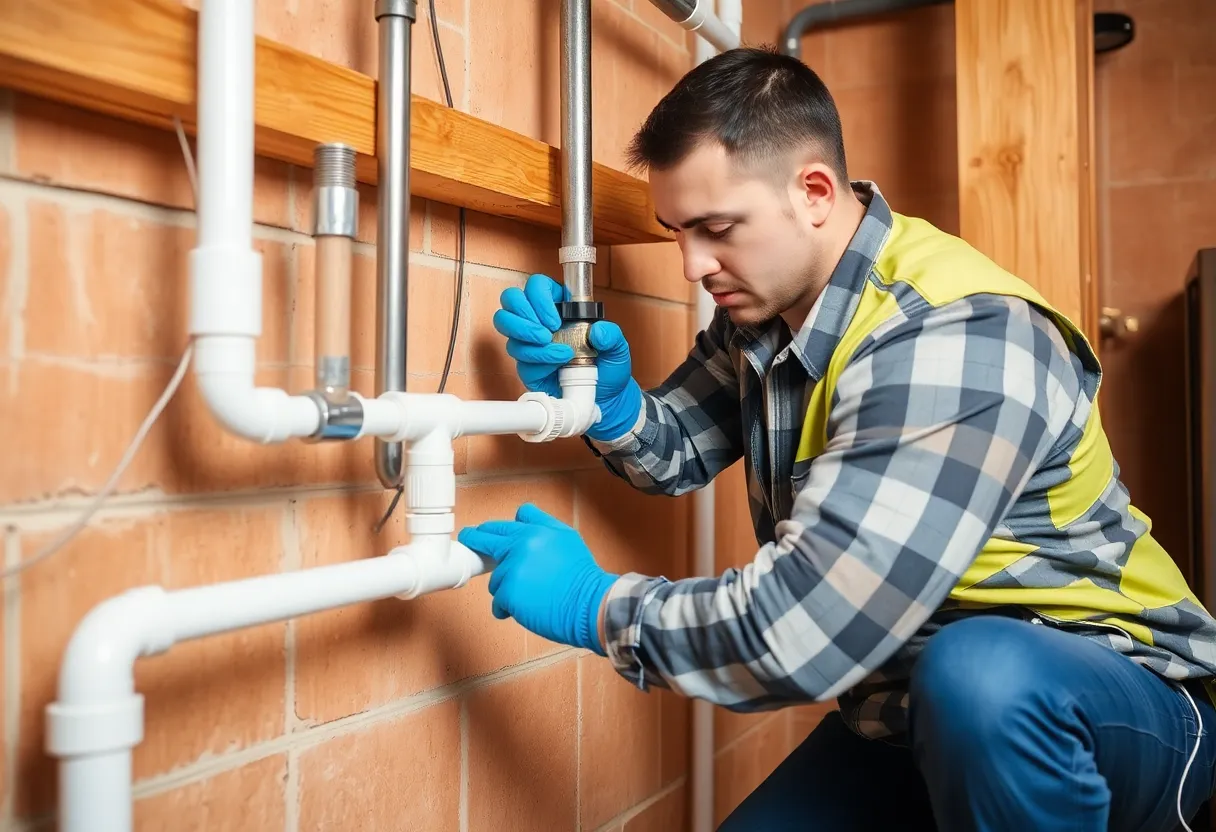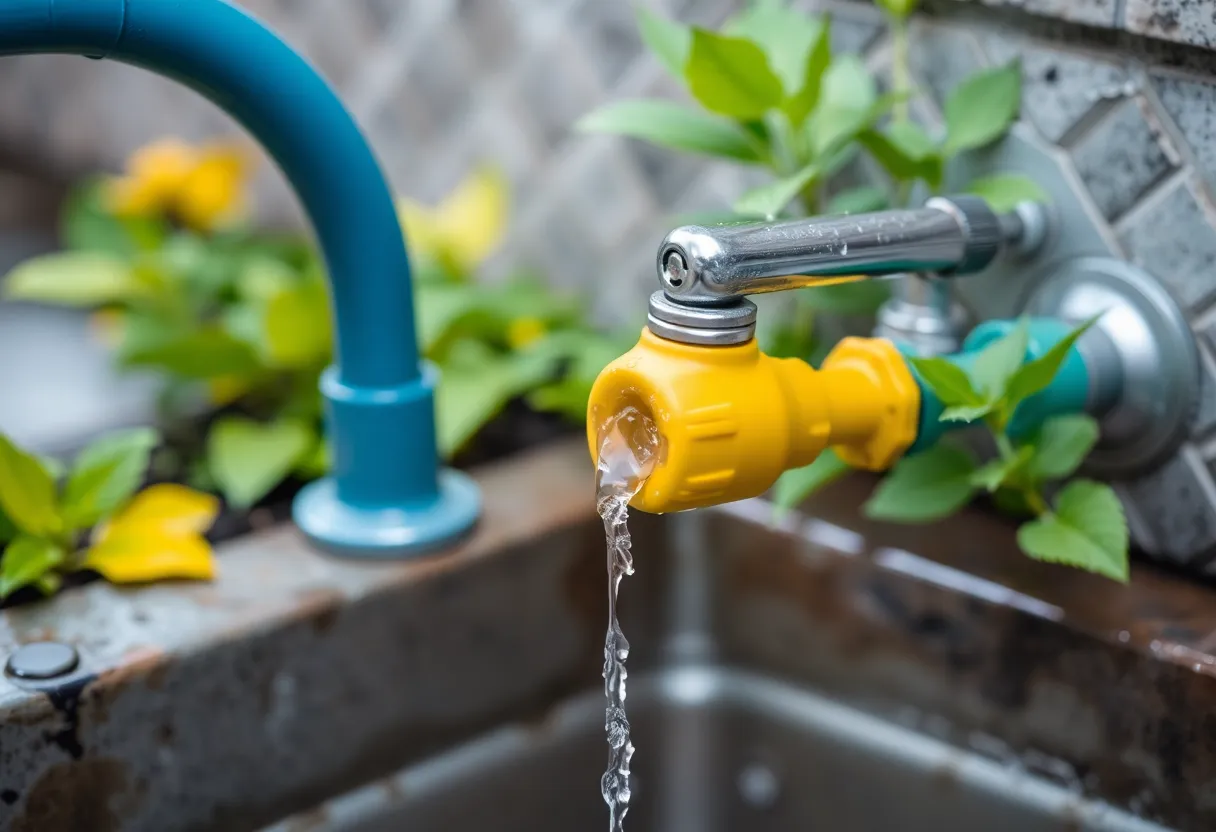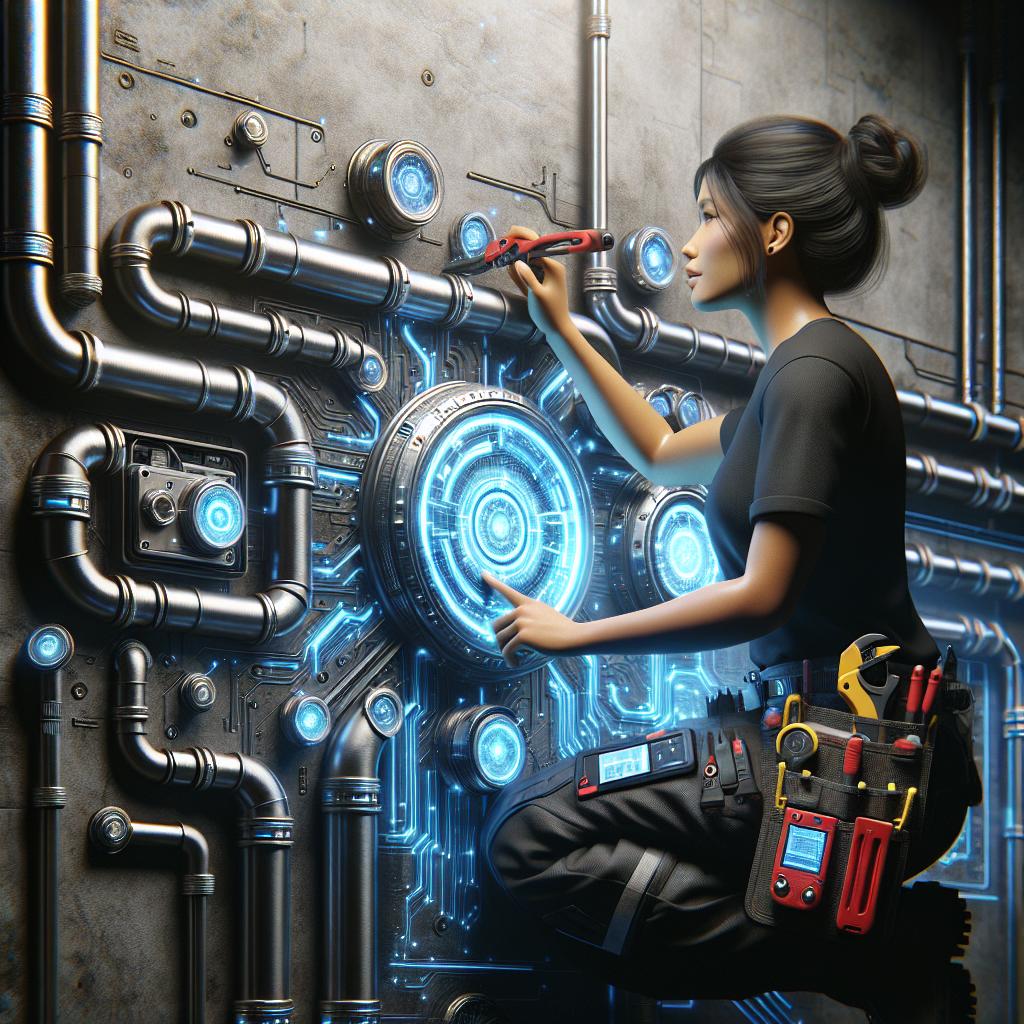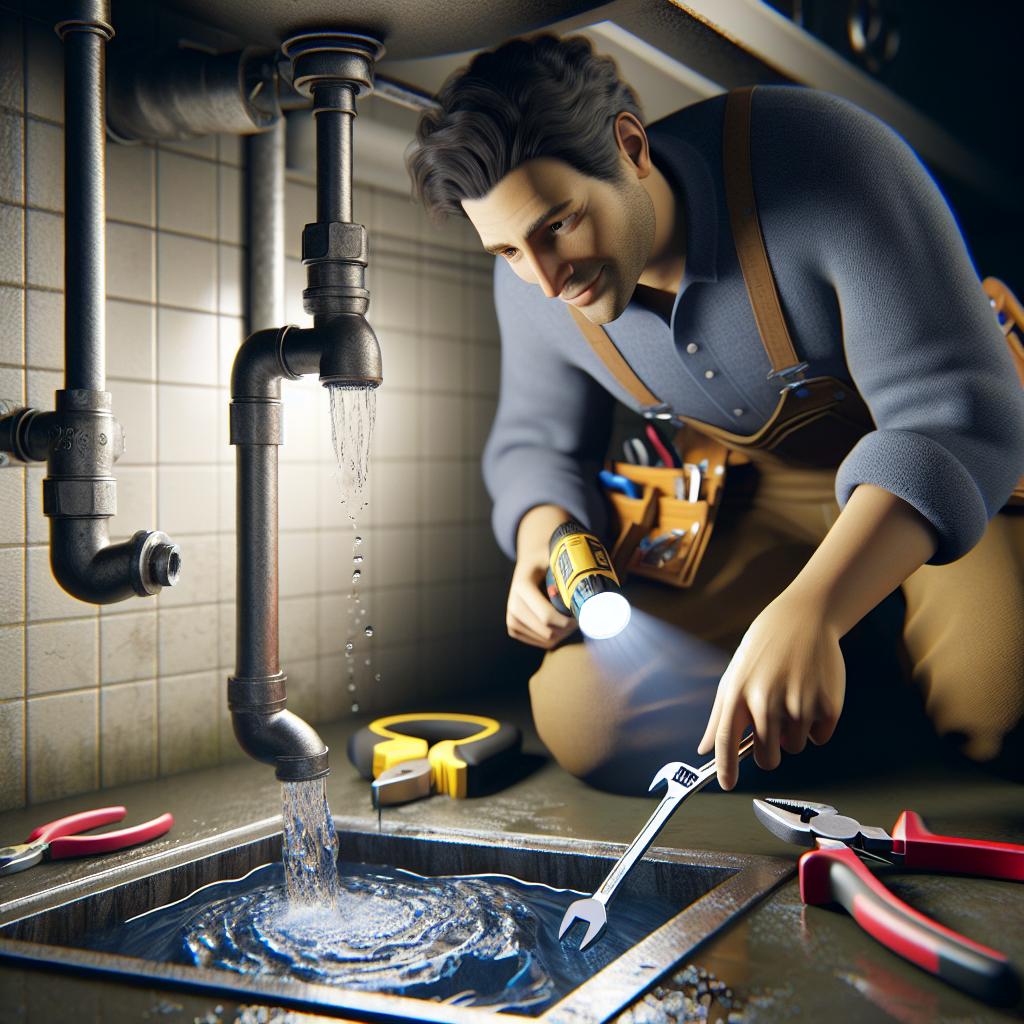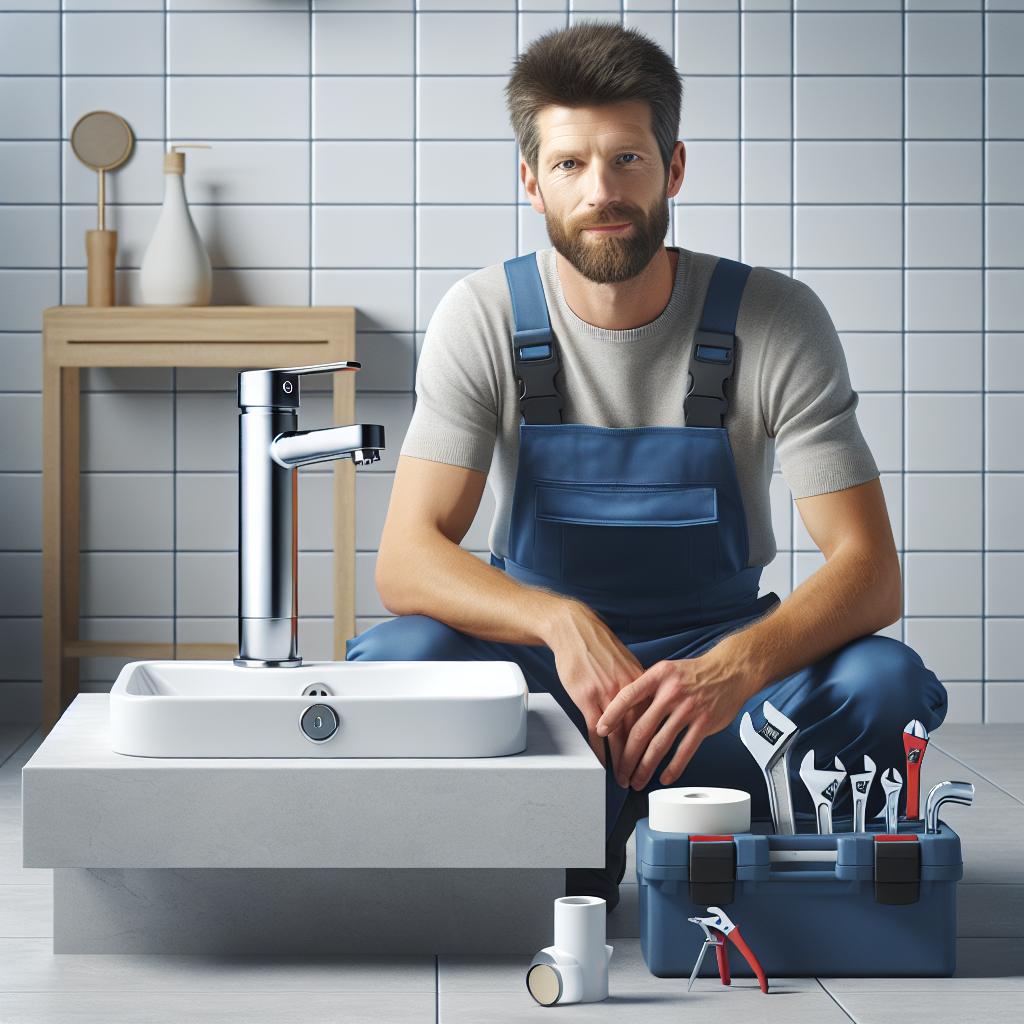Plumbing Revolution: 5 Must-Know Trends Transforming Your Home’s Water Management
The world of plumbing is evolving rapidly, and homeowners are becoming increasingly aware of the need for efficient and effective water management in their homes. As technology progresses and environmental concerns rise, plumbing trends are shifting to meet the demands of modern living. In this article, we will explore five essential trends that are transforming plumbing as we know it. Whether you are a homeowner looking to remodel or simply curious about the direction of plumbing, these insights will equip you with the knowledge to make informed choices for your home.
1. Smart Plumbing Technology
In an age where technology enhances every facet of our lives, plumbing is no exception. Smart plumbing technologies are revolutionizing how homeowners manage their water systems.
Understanding Smart Plumbing
Smart plumbing integrates technology with traditional plumbing systems to provide homeowners with real-time data and insights into their water usage. These systems often include
- Smart Sensors: Devices that detect leaks and monitor pressure, temperature, and flow rate.
- Mobile Apps: Software applications that give homeowners complete control over their plumbing systems, enabling them to view data and receive alerts.
- Automated Shut-off Valves: These valves can shut off water supply automatically when a leak is detected.
Benefits of Smart Plumbing
Embracing smart plumbing technology can bring numerous benefits, such as:
- Increased Water Efficiency: Monitor usage and identify wastage patterns.
- Preventing Damage: Quickly detect leaks and address issues before they escalate.
- Enhanced Convenience: Control your water systems remotely and improve the overall user experience.
2. Eco-friendly Plumbing Solutions
With rising awareness of environmental issues, many homeowners are prioritizing sustainability. Eco-friendly plumbing solutions are gaining traction, providing practical alternatives that reduce water consumption and energy usage.
Water-efficient Fixtures
Water-efficient fixtures, such as low-flow faucets and toilets, are at the forefront of this trend.
- Low-flow Toilets: These toilets use less water per flush, significantly reducing overall water consumption.
- Low-flow Showerheads: These fixtures reduce water flow while maintaining water pressure and comfort.
- Smart Irrigation Systems: Automated systems that optimize watering schedules for gardens while reducing water waste.
Benefits of Eco-friendly Plumbing
Using eco-friendly plumbing solutions offers various advantages, including:
- Cost Savings: Reduced water bills through decreased consumption.
- Environmental Impact: Contributing to sustainability efforts by conserving water resources.
- Increased Property Value: Sustainable homes can attract eco-conscious buyers, increasing the home’s market value.
3. Trenchless Technology
Traditional methods of replacing pipes often involve extensive excavation work, leading to disruption and high costs. Trenchless technology is an innovative approach that minimizes the need for digging, making pipe replacement and repair faster and less invasive.
How Does Trenchless Technology Work?
This method uses specialized equipment to create small access points for inserting new pipes.
- Pipe Bursting: A damaged pipe is broken apart while a new pipe is simultaneously inserted.
- Directional Drilling: This method allows for the installation of new pipes in a precise manner underground without extensive excavation.
Advantages of Trenchless Technology
The benefits of trenchless technology are substantial, including:
- Less Disruption: Reduces damage to landscaping and driveways, maintaining the integrity of your property.
- Faster Repairs: Projects can often be completed in a matter of hours instead of days.
- Cost-effective Solutions: By reducing labor and restoration costs, homeowners save money in the long run.
4. Water Recycling Systems
As water scarcity becomes a pressing global issue, water recycling systems are gaining popularity among progressive homeowners. Greywater recycling and rainwater harvesting are two systems that help conserve resources and promote sustainability.
Greywater Recycling
Greywater is the wastewater generated from household activities, excluding toilet waste. It can be treated and reused for various applications, such as irrigation and toilet flushing.
- Ease of Installation: Many greywater systems can be retrofitted into existing plumbing without significant modifications.
- Water Savings: With substantial reductions in freshwater usage, these systems help homeowners save on bills.
Rainwater Harvesting
Rainwater harvesting systems collect rainwater from rooftops and store it for non-potable uses.
- Simple Setup: A basic system includes gutters, a storage tank, and a filtration system for treatment.
- Resource Conservation: Enables homeowners to reduce reliance on municipal water systems.
Benefits of Water Recycling Systems
Implementing water recycling systems offers many advantages:
- Cost Reduction: Lower monthly water bills due to reduced municipal water usage.
- Environmental Benefits: Conservation of natural resources through sustainable practices.
- Increased Resilience: Provides a backup water source during droughts or water shortages.
5. Enhanced Pipe Materials
The choice of materials used in plumbing systems is crucial for their efficiency and longevity. New advancements in pipe materials are creating better solutions for homeowners, reducing maintenance needs and failure rates.
Trends in Pipe Materials
Some of the most notable developments include:
- PEX (Cross-linked Polyethylene): Lightweight and flexible, PEX reduces the risk of corrosion and is easy to install.
- CPVC (Chlorinated Polyvinyl Chloride): A more resistant option compared to traditional PVC, offering longer service life.
- HDPE (High-Density Polyethylene): Extremely durable and resistant to chemicals, making it ideal for various applications.
Advantages of Enhanced Pipe Materials
Switching to modern pipe materials brings numerous benefits:
- Longevity: New materials offer a longer service life and lower maintenance costs.
- Corrosion Resistance: Reduced risk of leaks and failures due to environmental corrosion.
- Efficiency Gains: Improved flow rates and pressure retention enhance overall plumbing efficiency.
The Future of Plumbing
As we delve deeper into the 21st century, it is clear that plumbing is experiencing a revolution. From smart technology and eco-friendly solutions to innovative materials and methods, the focus is shifting towards sustainability, efficiency, and convenience.
By staying informed of these trends, homeowners can make educated decisions about their plumbing systems, ultimately leading to a more sustainable and cost-effective living environment.
Investing in modern plumbing solutions not only enhances daily living but also contributes to broader environmental efforts, ensuring a healthier planet for future generations.
In conclusion, whether you choose to upgrade your existing plumbing systems or adopt new technologies, being aware of current trends can empower you to make choices that align with your lifestyle and values.
As the plumbing industry continues to innovate, embracing these changes can lead to transformative experiences within your home. Stay updated and engaged with the evolving world of water management to ensure your home remains efficient, modern, and sustainable.




